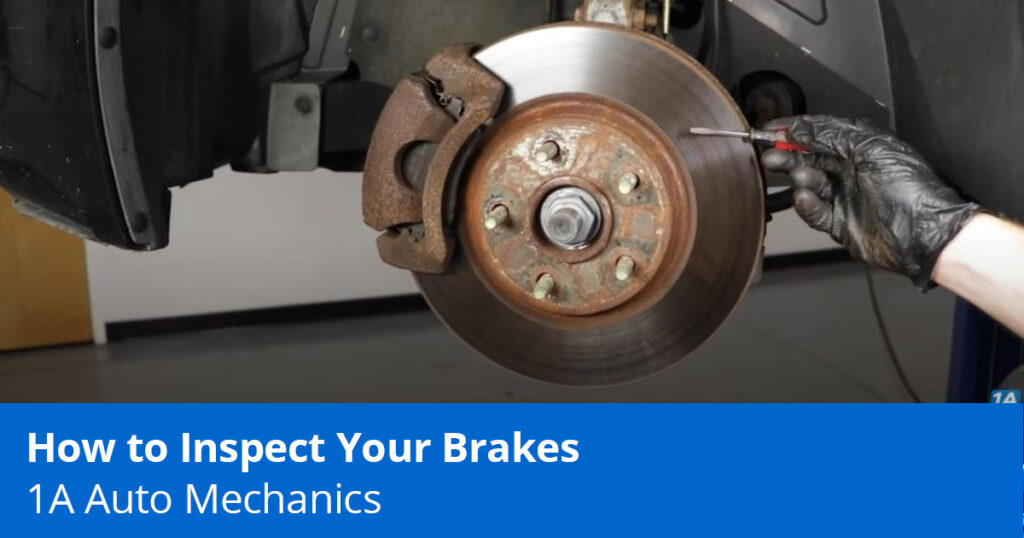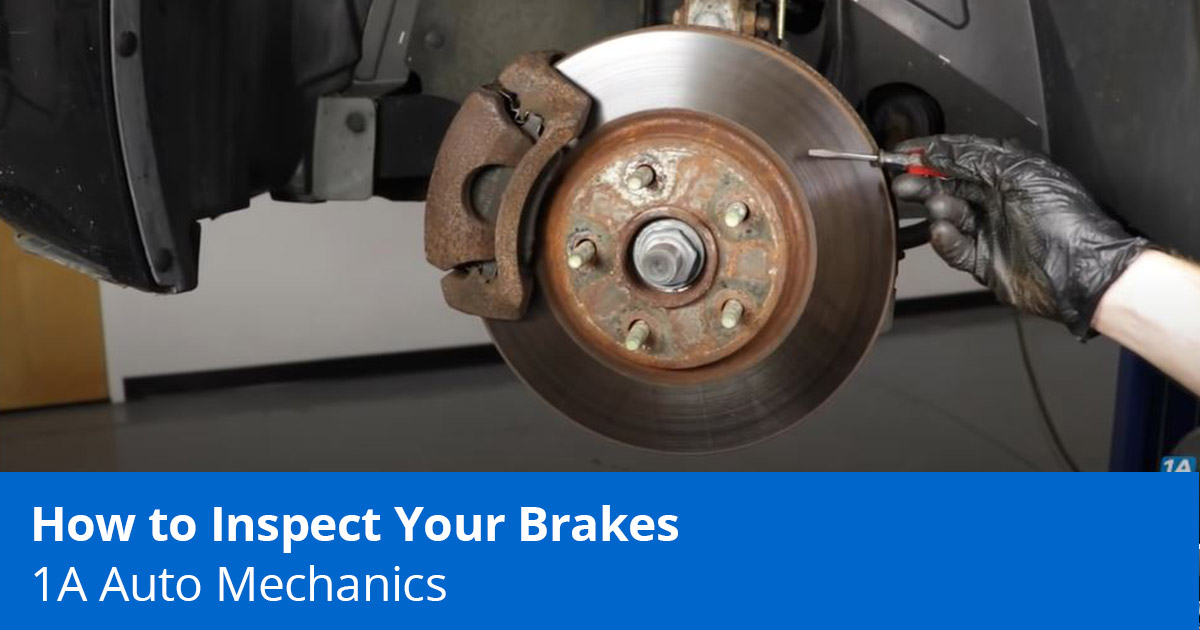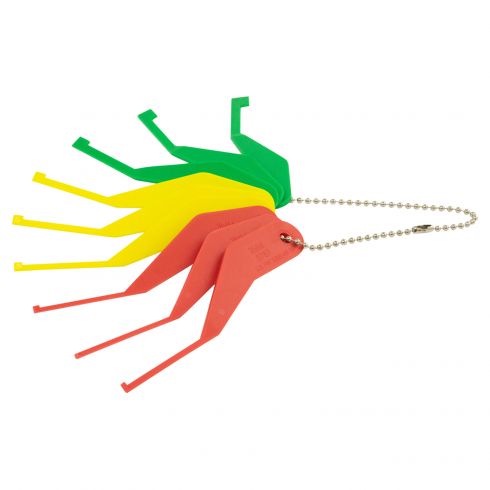
Hear a scraping, rubbing, or grinding noise when turning your car or truck? It may be the condition of your brakes. Find out what brake parts to inspect in the video and article below as our mechanic demonstrates how to check the brakes and identify the signs of a grinding sound.
How to Diagnose and Fix a Scraping or Grinding Noise When Turning
1. Road Test the Car or Truck to Find the Noise
Road test the vehicle to find out which wheel makes the noise. The sound will more than likely come from the brakes.
2. Visually Check the Brake Pads for Wear
Take a walk around the vehicle and check for noticeable signs of wear on the brakes.
Check the brake pad friction block thickness on the brake pad. A brake pad in a worn condition will have little to no brake pad material. You can measure the brake pad’s thickness with a brake pad thickness gauge.
Visually inspect the friction material layer on each brake pad. If one brake pad is more worn than the other, the rotor is probably scraping away brake pad material. The brake pad may be stuck inside the caliper bracket from stuck brake caliper slides. To get a better look at the brake parts, remove the wheel.
3. Spin the Wheel and Listen for a Grinding or Scraping Noise
With the wheels on the ground, loosen the lug nuts with a breaker bar. Raise and secure the vehicle with a jack and jack stands. Before removing the wheel, spin it and listen for a scraping sound.
4. Remove and Inspect the Brake Caliper
Remove the caliper bolts and set the caliper aside to get a better look at the brake pads.

Basic Steps for Removing a Brake Caliper
Remove the Brake Caliper
- Loosen the brake hose bolt.
- Remove the two caliper slider bolts.
- Pull the caliper free from the rotor and support it with a hanger.

Inspect the caliper piston for leaking brake fluid. This means the brake caliper piston has a brake fluid leak.
5. Remove and Inspect the Brake Pads

Remove the brake pads. They should remove easily.
If you need to pry the brake pads out with a tool like a pry bar or hammer, the brake pads were probably stuck inside the caliper bracket, which can cause scraping while turning.

Check the brake pads for a glaze that reflects cleanly like a mirror, which can also cause a scraping noise while turning. Debris inside the brake pad friction tab can also cause a scraping noise.
6. Look for Bends in the Metal Brake Pad Brackets that Could Cause a Grinding Noise

Check the brake pad brackets for bending. A bent brake pad tab can scrape against the brake rotor.
7. Look for Bends in the Backing Plate

Look for a bend in the backing plate. It’s intended to protect the brake rotor from debris and water that could splash and cause damage to the brakes. If the backing plate is bent, it can scrape against the rotor while turning and driving.
8. Test and Inspect the Brake Caliper Slides

Press the brake caliper slides in and out. If they have trouble moving or spinning or if one is frozen, inspect them. Remove the caliper slide and inspect its condition. If the slide is broken, replace it. Clean the slide with brake parts cleaner and coat it with brake grease for better movement.
9. Inspect the Brake Rotor Surface

Check the brake rotor surface for scraping or deep grooves. A rotor with rust build-up can make a grinding noise when turning or driving as it wears into the brake pad. It could also scrape against the metal brake pad tabs. Clean off any rust.
Remove Rear Brake Drums
How to Tell If the Vehicle Has Rear Brake Drums or Rotors
If the e-brake cable is incorporated with the brake caliper, there are no separate e-brake shoes behind the rotor to inspect.
If the e-brake cable does not go to the caliper but to the backing plate or behind the brakes, there are e-brake shoes. Remove the rest of the caliper and remove the brake drum to access the brake shoes.
10. Test the Wheel Hub by Spinning the Rotor and Listening for Grinding or Scraping
With the brake pads clean and the rotor cleaned, spin it again and listen for a scraping, which could indicate the wheel bearings are worn.
11. Repeat These Steps on the Remaining Wheels
Repeat this process for the remaining wheels.
Content Related to Grinding Noise When Turning
- Scraping Noise While Driving?
- How to Bleed Brakes By Yourself
- Causes and Fixes of Pulsating Brakes
- Why is My ABS Light On But My Brakes Seem Fine?
- Why Are My Brakes Sticking?
- Frozen Brakes: Do You Smell Burnt Rubber or Plastic?
- Why are my brakes grinding? [Expert advice to diagnose & fix]
- Brakes Squealing? It’s Probably Time for New Brake Pads
- How To Tell Which Wheel Bearing Is Bad While Driving
- What Does A Bad Wheel Bearing Sound Like?
- When Should Brake Pads Be Replaced?
- How Long Do Brakes Usually Last?
- TRQ Brake Parts Buying Guide
Shop Parts and Tools Needed to Fix a Grinding Noise When Turning
- Brake pad thickness gauge set
- Brakes & Wheel Bearing
- Brake Calipers & Brackets
- Brake Drums
- Wheel Bearing & Hub Assemblies
- Brake Pads
- New Brake Rotors
- Brake Shoes
- Complete Brake Kits


